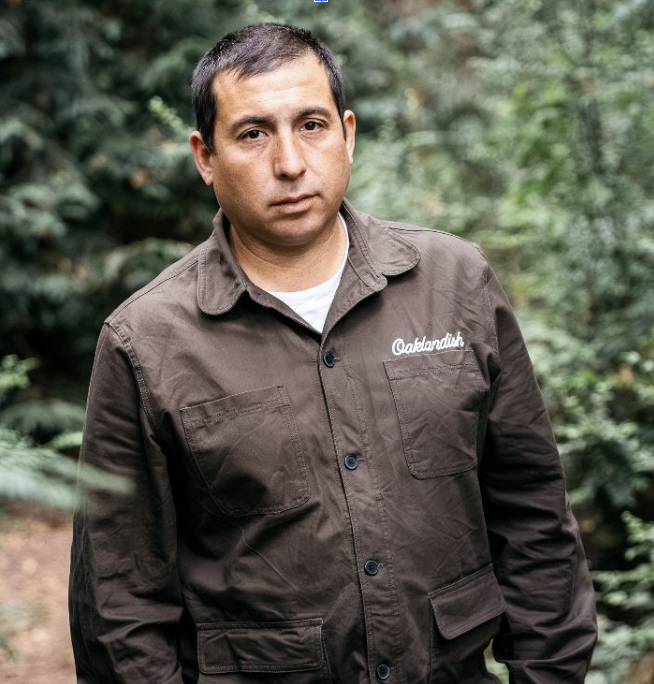
- Details
- By Kaili Berg
The Institute of American Indian Arts (IAIA) alum and faculty mentor Tommy Orange (Cheyenne and Arapaho) has been named a 2025 MacArthur Fellow.
The John D. and Catherine T. MacArthur Foundation announced the 2025 class of fellows on Wednesday, October 8. Each recipient is awarded an unrestricted $800,000 grant, often called the “genius grant,” given to individuals who have shown exceptional originality and dedication to their craft.
Orange, an Oakland-born writer and IAIA MFA graduate (’16), has earned national acclaim for his storytelling that captures the layered realities of urban Native life.
His debut novel, There There (2018), became an instant classic, winning the PEN/Hemingway Award and the John Leonard Prize from the National Book Critics Circle. The book was also named one of The New York Times’ 10 Best Books of 2018.
His second novel, Wandering Stars (2024), continues that momentum, earning the 2025 Aspen Words Literary Prize and a longlisting for the 2024 Booker Prize.
“His storytelling expands how the world understands contemporary Indigenous life and honors the strength and brilliance of our communities,” IAIA President Dr. Shelly C. Lowe (Navajo) said in a press release. “As an alum and a faculty mentor in our MFA in Creative Writing program, he models the craft, discipline, and generosity we hope to instill in every student.”
Orange now teaches in IAIA’s MFA program, helping nurture the next generation of Indigenous writers. A video about Orange’s work is available on the MacArthur Foundation’s website, along with profiles of all 2025 Fellows.
More Stories Like This
Native News Weekly (August 25, 2024): D.C. BriefsUS Presidents in Their Own Words Concerning American Indians
National Native Organizing Group Responds to ICE’s Announcement to Leave Minneapolis
CBS News: ICE Arrested Nearly 400,000 — Fewer Than 14% Linked to Violent Crimes
“First Step Toward Justice”: Flanagan Responds to ICE Withdrawal
Help us defend tribal sovereignty.
At Native News Online, our mission is rooted in telling the stories that strengthen sovereignty and uplift Indigenous voices — not just at year’s end, but every single day.
Because of your generosity last year, we were able to keep our reporters on the ground in tribal communities, at national gatherings and in the halls of Congress — covering the issues that matter most to Indian Country: sovereignty, culture, education, health and economic opportunity.
That support sustained us through a tough year in 2025. Now, as we look to the year ahead, we need your help right now to ensure warrior journalism remains strong — reporting that defends tribal sovereignty, amplifies Native truth, and holds power accountable.
 The stakes couldn't be higher. Your support keeps Native voices heard, Native stories told and Native sovereignty defended.
The stakes couldn't be higher. Your support keeps Native voices heard, Native stories told and Native sovereignty defended.
Stand with Warrior Journalism today.
Levi Rickert (Potawatomi), Editor & Publisher


